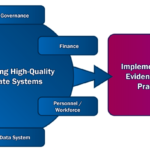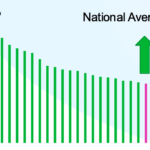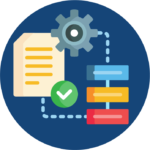
This presentation discussed the protection of personally identifiable information and data sharing, relative to requirements in the Individuals with Disabilities Education Act (IDEA) and the Family Education Rights and Privacy Act (FERPA).

In this presentation, presenters share tips for high quality practice evaluation and analysis and present an example from Hawaii’s experience.

The Individuals with Disabilities Education Act includes requirements for developing Individualized Education Programs (IEPs) and determining placements for preschool children with disabilities.

This is the last in a series of stand-alone facilitated listening sessions provided by DaSy and ECTA focused on the transition from Part C to Part B, 619. Presenters shared resources and tools that may assist states as they improve their data processes and systems.

The data analysis path expands on prior content to include concepts ranging from statistics to data use as well as their practical application. Data analysis is critical for transforming the ever-growing volume of raw data available to early childhood programs into meaningful information that may be used for checking data quality, identifying/answering programmatic questions, and decision-making.

This DaSy tip sheet series provides concise guidance for collecting and analyzing high-quality data on the implementation of evidence-based practices.

The DaSy toolkit is a resource containing information, guidance, and templates to help Part C and Part B 619 program staff build effective data teams and support conditions for a culture of data use at the state and local levels. The toolkit is organized around key steps to building a culture of data use in your state or local team.

This DaSy report provides an overview of process modeling and data modeling and explains the value of each in the development or major enhancement of data systems. Process modeling and […]

In the midst of the COVID-19 pandemic, many states continue to provide Part C and 619 services online or via a hybrid model of remote and in-person. For programs that have moved to in-person, access is often limited to only children and staff. As a result, challenges have emerged in determining the best ways to provide practice-based coaching to support practitioners with the implementation of evidence-based practices.

Join a panel of state leaders who will share their roles in the development and pilot of the Part C and Part B/619 Leadership Initiative sponsored by the Early Childhood Personnel Center (ECPC). Strengthening the knowledge and skills of the Part C and Part B 619 coordinators leads to enhanced effectiveness and retention of these critical state system leaders.











